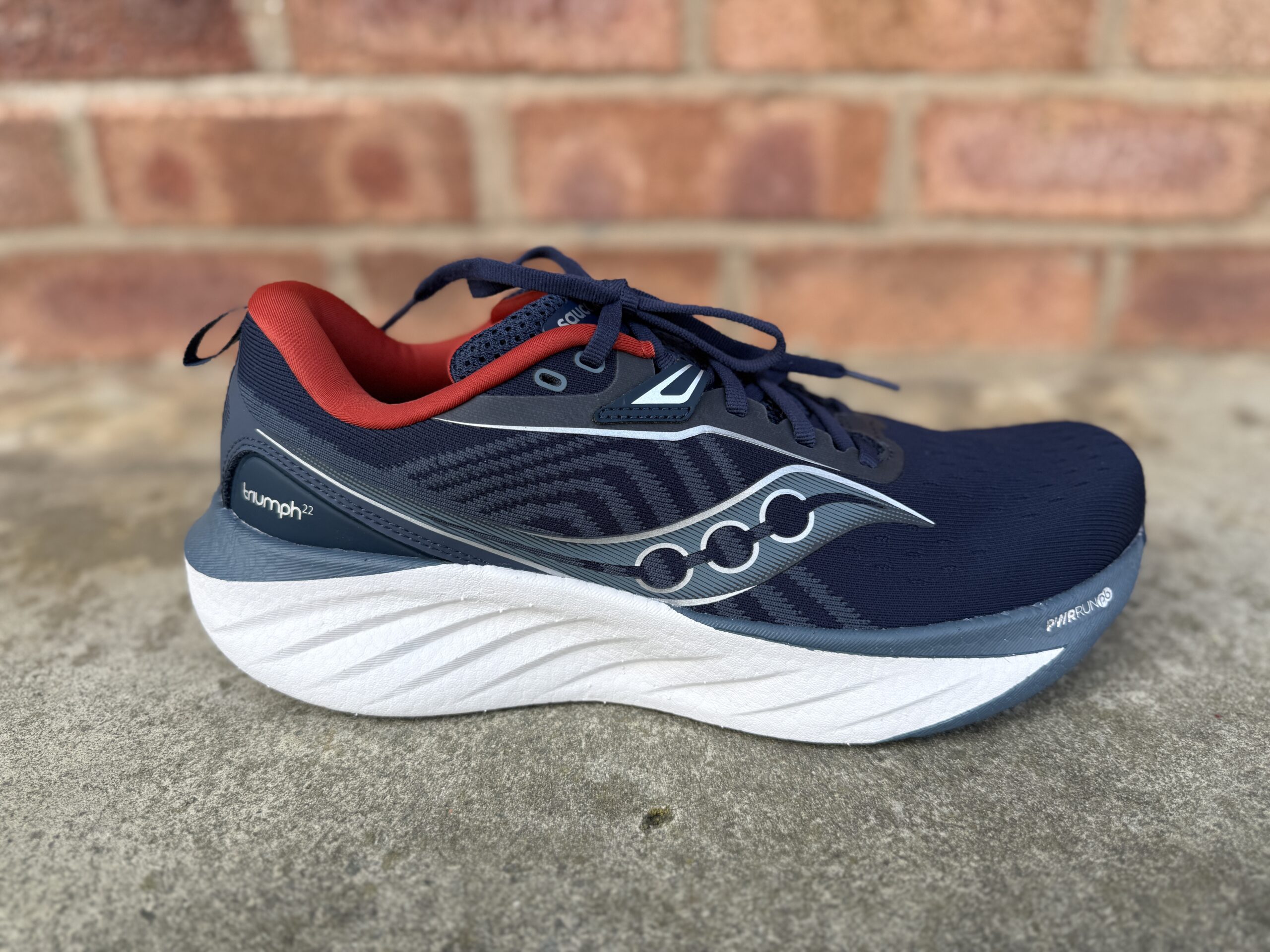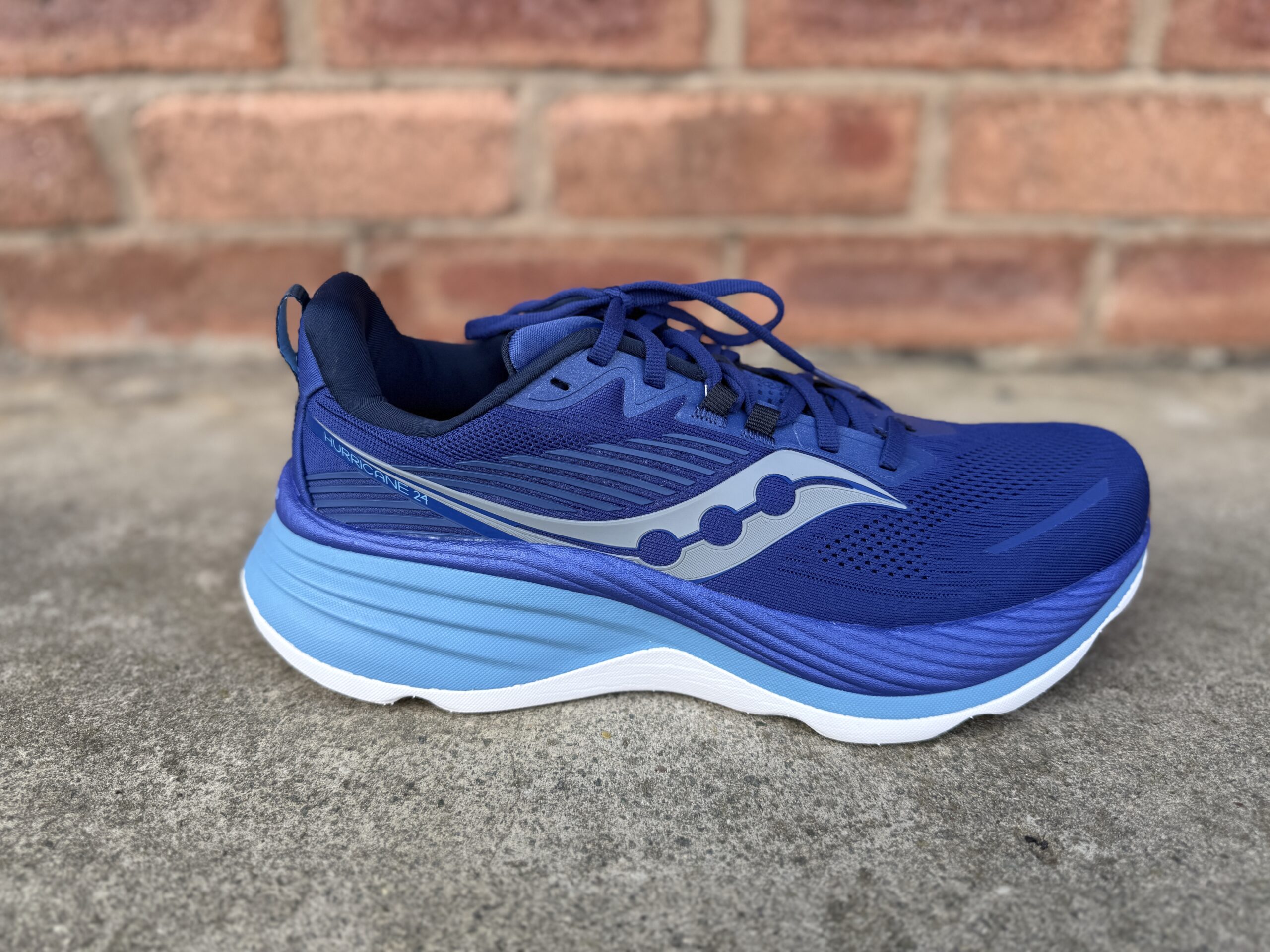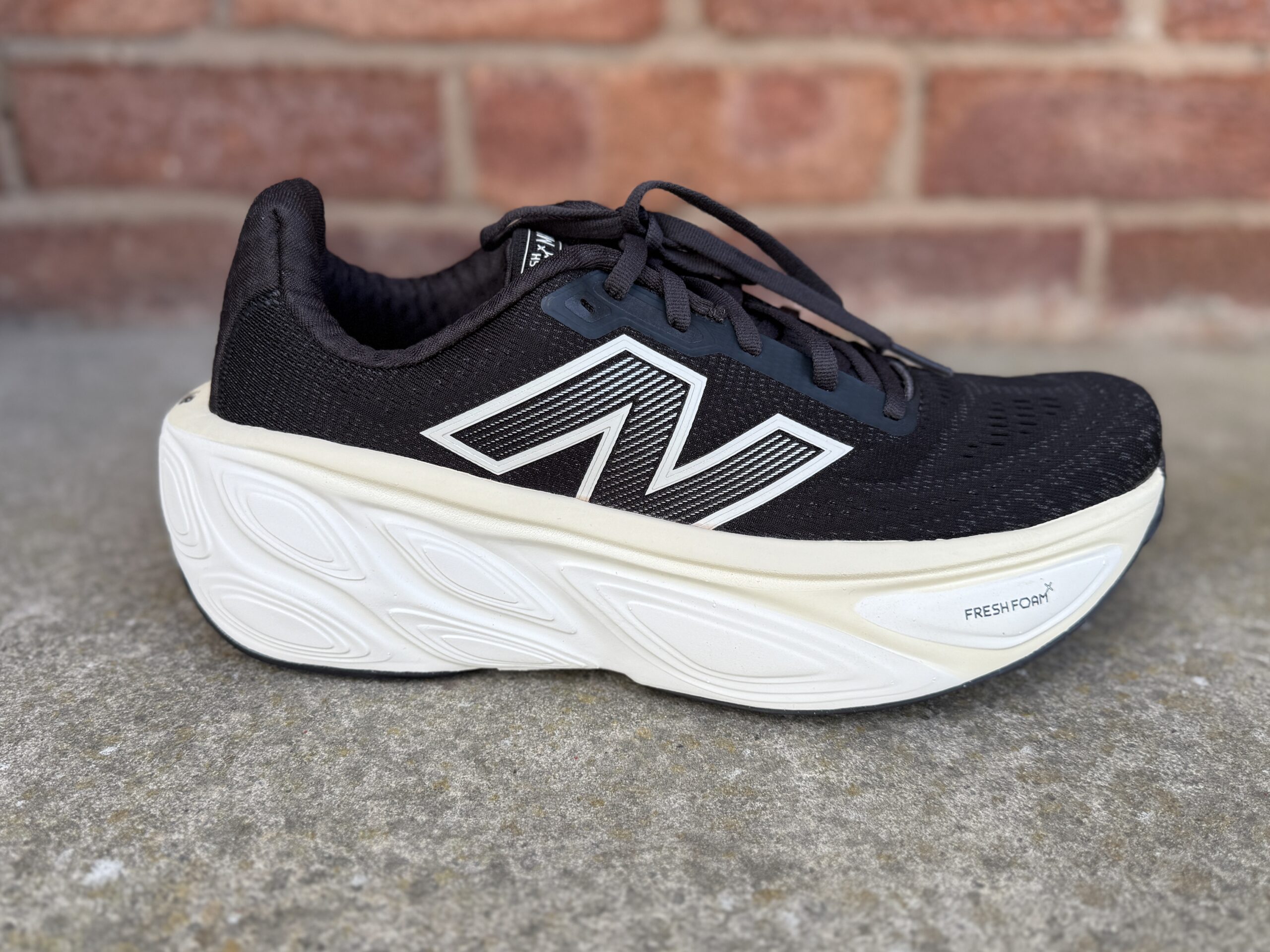By Paul Freary
I spent the last month researching, reviewing, and testing running shoes for big guys, athletes big and tall, and overweight people ready to start shedding weight safely and comfortably.
Selecting appropriate running shoes is crucial for performance and injury prevention. One key consideration is the runner's body weight, which can influence the amount of cushioning needed.

If you click, or buy from, links on this page, we may receive compensation. Learn more
Lets talk about the Elephant in the room.....
......Cushioning
The Impact of Body Weight on Cushioning Needs
A study published in the Journal of Biomechanics found that heavier runners benefit from shoes with increased cushioning, as it helps in attenuating the higher impact forces experienced during running.
https://pmc.ncbi.nlm.nih.gov/articles/PMC5390569/
The conclusion of this study was that the initial hypothesis of the study was confirmed, as body mass was found to significantly influence the capacity of technical footwear to cushion impulsive forces generated during running.
Conversely, lighter runners may not compress firmer midsoles effectively, leading to less shock absorption. This mismatch can result in increased impact forces being transmitted through the musculoskeletal system.
What is a Heavier Runner?
The question of weight is an arbitrary one, so in preparing this article, I searched for answers on the average weight of a marathon runner.
I came across a study, albeit from 2016, of Boston Marathon qualifiers, which gave the following results on average weight.
“The average weight for male respondents was 157 pounds. For comparison, the average American male is 190 pounds.
The story is similar for women; the average respondent was 125.4 pounds. By comparison, the average American woman weighs 159 pounds.”
From these results, we could refer to a heavier runner as ‘above average’ – but this again could confuse. We could ask runners if their running aimed to control their weight. Ultimately, I think it’s a very personal consideration of the runner as to whether they consider themselves a ‘heavier runner’.
My Running Shoe Selections for Heavier Runners
With all of the above in mind, I have selected some of the best shoes around right now that offer higher levels of cushioning and use the latest in running shoe cushioning technology to not only provide great shock absorption but also tend to offer greater durability.
1. Brooks Glycerin Max
The Glycerin Max is the brand’s most cushioned model and features their latest cushioning technology, DNA Tuned is Brooks’ new method of creating a nitrogen-infused foam with dual-cell technology. The use of different sizes of cells within the same midsole allows for the material to offer different characteristics in different parts of the shoe.

Glycerin Max
Shop Now at
In the rear of the midsole, the cells are larger and provide a soft, more cushioned feel on impact.
In the forefoot of the midsole, small cells are used and provide a more responsive and propulsive feel to the toe-off.
The ride of the Glycerin Max is immediately one of great cushioning properties, and from experience, I know that the brand's nitrogen-infused foams offer excellent durability.
At almost 46mm deep, the stack of the shoe is not only Brooks’ highest, but one of the highest offered by any brand on the market right now!
The feeling of a soft heel impact is evident, but it balances well with the more responsive forefoot. The aggressive forefoot rocket might take some runners a few miles to get used to, but it needs to be there due to the deep cushioning stack, and it makes for a more efficient toe-off.
For heavier runners who want the most cushioned daily trainer around right now, the Glycerin Max is certainly worthy of consideration thanks to both the very high stack of cushioning and the technology that it uses.
2. Saucony Triumph 22
Feel the need for speed?
The Saucony Triumph has long been the brand’s premium neutral cushioned daily training model. Now the Triumph 22 brings more cushioning, this time in the form of the brand’s PWRRUN PB foam midsole.

Triumph 22
Shop Now at
PWRRUN PB is part of the PWRRUN ‘family’ of foams. Its benefit is that it offers soft, shock-absorbing cushioning on impact, with a responsive feel that adds a little spring to push-off. The midsole's geometry is also tweaked a little to improve general stability.
While not as high a stack of cushioning as the Brooks, the Triumph 22 is Saucony’s range-topping daily training model and with a 37mm thick midsole, it is considered a high stack model.
The PWRRUN PB foam is used in several of Saucony’s shoes, but here, its higher, more dense design sets it apart from other shoes in their line-up, such as the Ride.
The shoe has a ‘springier’ ride than that of the Glycerin, which I’d describe as having a slightly ‘bouncier’ feel. Okay, this may seem the same, but it’s hard to describe the subtle difference. I’d say the Saucony is a livelier running experience, whereas the Brooks is a long-distance cruiser!
Regardless of the differences, the Saucony Triumph 22 is a great choice of running shoe for the heavier runner. It’s a light and engaging running experience, with relatively soft cushioning and a ride that allows you to pick up the pace.
3. Saucony Hurricane 24
While the Triumph 22 is Saucony’s best neutral running shoe for heavier runners, the Hurricane 24 is aimed at those runners requiring more support.

Hurricane 24
Shop Now at
The brand’s Guide 18 is their mid-range support shoe option, while the Hurricane ups the stakes in terms of the quality of the cushioning in this supportive model. It combines PWRRUN PB foam and the original PWRRUN material. The former gives the shoe a light and responsive feel, while the latter helps with stability.
PWRRUN PB is the brand’s ‘fast’ and responsive foam cushioning material and is used to make up the majority of the midsole in this model. The Triumph 22 uses this foam to make up its entire midsole.
In the Hurricane 24, PWRRUN PB makes up around 80% of the midsole stack of 38mm, so there’s no shortage of cushioning!
The remaining section of the midsole uses PWRRUN, adding stability to the shoe. PWRRUN is a slightly firmer midsole foam. Found in the brand’s models, such as the Guide 18, PWRRUN foam still has good cushioning properties and proves to be a very durable material.
Along with the midsole foam combination, the brand employs its Centrepath Tech, Saucony’s new method of adding stability to a shoe without the need for traditional medial posts. Used in both the Guide 18 and Hurricane 24, Centrepath Tech combines a broader base and higher sidewalls of the midsole to provide support and control.
The Hurricane 24 has a broad footprint throughout the length of the shoe as well as a straighter rearfoot on the medial side. These features provide a very stable platform.
Although the shoe looks incredibly high stacked, it is in fact only 38mm in the heel of the shoe. The illusion of an even higher stack comes from the higher sidewalls. The foot sits within these sidewalls, and similar to the support provided by Guiderails in Brooks GTS models, the foot sits centrally within the shoe and remains more stable.
For heavier runners, the Hurricane 24 is a very stable offering in a model that provides a high stack of cushioning that’s capable of meeting the greater demands of heavier athletes.
4. HOKA Bondi 9
Now established at HOKA’s premium cushioning model, the Bondi 9 now uses supercritical EVA foam in the midsole. Unlike traditional compression-moulded EVA foams, supercritical foams are created by infusing air into the EVA material using a high-tech injection process. The result is a lighter, more responsive ride that maintains all the signature Hoka cushioning but with a bit more pop underfoot.

Bondi 9
Shop Now at
I previously felt that with its ‘normal’ CM-EVA midsole, the Bondi 8 didn’t offer much of a benefit over other competitor models, which were introducing more modern and hi-tech midsole materials. In that respect, the Bondi 9 brings it right up to date and can compete on a level footing with the other models in this list.
The feeling of the Bondi 9 is a familiar one, with the high stack and plush feel. It’s on the run that the shoe feels much improved and better equipped to handle the demands of higher impact from heavier runners.
The foaming process of the midsole means it offers both a better level of cushioning as well as a more durable lifespan. While I am myself an average weight runner (maybe even on the lighter side of average), my runs in the Bondi have rekindled my relationship with the HOKA brand! Be it short recovery jogs or longer ‘marathon training’ days, I return from running in the Bondi 9 with fresher-feeling legs, such is the noticeable benefit of the cushioning.
Having logged around 300 miles in my Bondi 9 so far, they are also holding up exceptionally well with very little sign of wear or feeling of loss of their ability to provide excellent cushioning.
5. New Balance Fresh Foam X More V5
With its deep stack of the brand’s Fresh Foam X midsole cushioning, the MORE really does do exactly what its name suggests: provide more cushioning.

More V5
Shop Now at
With its deep stack of the brand’s Fresh Foam X midsole cushioning, the MORE really does do exactly what its name suggests: provide more cushioning.
As well as being a deep stack, it is also a broad base, so stability isn’t affected too much.
The ride of the Fresh Foam More V5 is soft and plush, and while not the most responsive of shoes, its overriding sensation is one of premium cushioning that keeps on going. The upper matches the plushness of the cushioning, with soft, premium feel materials and neat padding that hugs the foot.
With three neutral, daily training options available from New Balance, the More v5 is the best suited for heavier runners.
The 880 is an everyday shoe for a lot of people, but regardless of weight, they, too, can enjoy the feel of the More v5 if they want a softer ride.
The 1080 steps it up in terms of cushioning over the 880, but again, the More v5 just gives something different without cushioning being its primary aim.
Perhaps the softest of the selections here, the New Balance Fresh Foam X More v5 is best suited to those heavier runners who like to keep the pace steady and simply run to enjoy the experience rather than shooting for a new PR.
Footwear Considerations
Benefits and Drawbacks of Different Cushioning Levels
Benefits
Injury Prevention: Adequate cushioning can reduce the risk of injuries by absorbing impact forces. A randomised controlled trial involving 848 recreational runners found that those using shoes with softer cushioning had a lower injury risk compared to those with harder shoes.
https://pubmed.ncbi.nlm.nih.gov/31877062/
The conclusion of this particular study found that the injury risk was higher in participants running in hard shoes compared with those using soft shoes. However, the relative protective effect of greater shoe cushioning was found only in lighter runners.
Drawbacks
Excessive cushioning can lead to changes in running mechanics, such as increased leg stiffness and higher impact loading, potentially increasing injury risk.
This study, https://pmc.ncbi.nlm.nih.gov/articles/PMC6269547/ concluded that running in highly cushioned shoes increases leg stiffness and amplifies impact loading.
Reduced Proprioception: Thick cushioning can reduce ground feel, affecting balance and coordination. This could be detrimental for trail running, for example, where precise foot placement is required.
So when it comes to selecting running shoes, the correlation between runner weight and a shoe’s cushioning is evident, with body weight influencing the optimal level of cushioning required. Appropriate cushioning can enhance performance and reduce injury risk, but excessive or insufficient cushioning may have adverse effects. Runners should consider their body weight, running style, and personal comfort when selecting running shoes.



Did you consider any Hoka brand shoes? I am overweight and they are fabulous! I can wear them all day and have no foot or leg pain. They are amazing!
I tried Hoka brand, the overcushioning makes me have to exert more energy to run.It’s good for walking but I like to run for the most part.
Which Hoka shoe do you wear? I underpronate & my podiatrist recommended Hoka, but I’m not sure which style I should look at. Thanks!
Check out the Hoka Clifton 3. Might be a good fit for your situation.
I totally agree. I got a pair and my nerve problem has left and my knees feel greats
Which ones? There are several different Hoka styles. Thanks.
I bought a pair, VERY comfortable except the sole is a rocker (Clifton 8). I feel and look like I am drunk when I walk. Would NEVER wear them somewhere there isn’t a rail or wall to support me. These are my first and LAST pair of Hoka shoes
What about new balance 1080v7.
New Balance 1340 is a good shoe.
I have the Mizuno’s and they are great for walking not so much for running. They almost feel as though they bottom out when running. Actually light jogging. Sprints? Forget about it, you might as well run barefoot. I’m 5’10 236 looking for a well “heavy weight” shoe. These light weight shoes weighing in at ounces don’t stand a chance at keeping us heavier guys afoot.
Switching gears and am looking for a shoe that’s literally heavy, well constructed and “dense” . To give you a comparison something like my Ecco walking shoe. I can walk for miles in those and my knees never hurt.
There was a weighty new balance that when I picked it up was not lite weight. Wish I remembered the model.
Hello .. my weight is 101kg (girl) I am searching a working shoe .. when I am at work my toes pain so badly I take medicine quickly within 1 n half hours so I request you to suggest me a shoe which I can comfortably with in my working time .. n I hope your reply will come soon.. thank you
I work concert i am 4″6 in height 220 in weight i need shoe to stand and walk long distance i have knee problems and bottom of my feet burn and hurt
What shoes should i get in depserate need to find one
Wow, a lot of presumption going on in this article. Not all fat people have knee or arch issues or pain (except from rolling their eyes at articles like this). And I highly discourage people from attempting to change their gait with running shoes. There is firm science indicating that if you ‘overpronate’ that it is perfectly normal and changing it with medial posts and guiderails can actually cause injury.
To those who asked about Hokas- many people of all sizes and ability love the Clifton for running, if you like rocking while you walk you may also enjoy them, personally I don’t like feeling like I am going to break my ankle while walking or running so all Hokas are a hard pass for me (I am not a fan of the low drop either). Also be careful wearing them for other types of workouts. You’ll see what I mean when you try them on.
If you want shoes that are designed for your specific needs look into not only the cushion but the drop. And if you are like me and training for your 10th half marathon as an ‘overweight’ person, you might not want a heavy shoe designed for ‘supporting the weight of fat people’, you might want something lighter and more responsive. Your best bet is to do some research, read lots of reviews then try them out at your local running shop.
I am 6 feet and 205lbs and have run many half marathons in Brooks Ghost shoes. I still run in them but decided to pick up a pair of Clifton 7s because a friend swore by them. When I run in the Clintons, I feel my Achilles tendon and calf muscles begin to strain after the second mile. I noticed that when I run, my heel drop is much lower than Ghost. I switched to Ghost again and it was smooth all the way with no strain. I love the Cliftons walking – so soft – but running just requires more work for me.
I am looking for competitive race times for runners who are in the heavyweight + category!!
For me (males 226 pounds+ PRs: 2.5KM 11:39 3KM 13:56 5KM 22:58 8KM 39:15 and 10 KM 45:53).
Let me know ASAP!
THANX